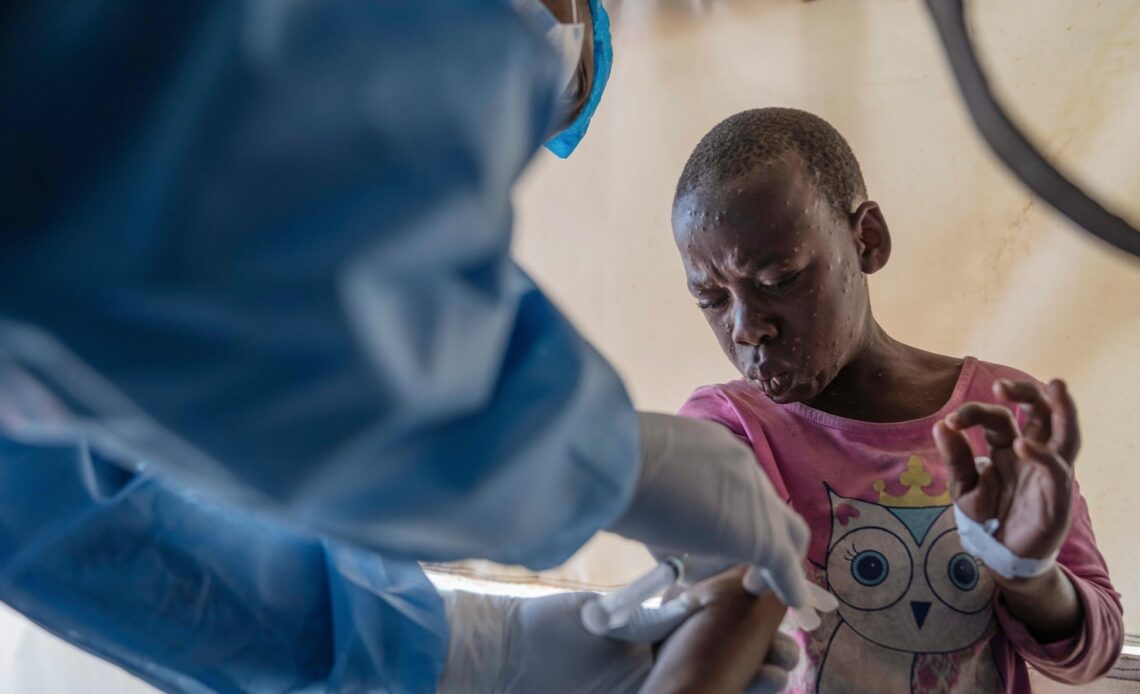GOMA, Congo — Some health officials say mpox cases in Congo appear to be “stabilizing” — a possible sign that the main epidemic for which the World Health Organization made a global emergency declaration in August might be on the decline.
In recent weeks, Congo has reported about 200 to 300 lab-confirmed mpox cases every week, according to WHO. That’s down from nearly 400 cases a week in July. The decline is also apparent in Kamituga, the mining city in the eastern part of Congo where the new, more infectious variant of mpox first emerged.
But the U.N. health agency acknowledged Friday that only 40% to 50% of suspected infections in Congo were being tested — and that the virus is continuing to spread in some parts of the country and elsewhere, including Uganda.
While doctors are encouraged by the drop in infections in some parts of Congo, it’s still not clear what kinds of physical contact is driving the outbreak. Health experts are also frustrated by the low number of vaccine doses the central African nation has received — 265,000 — and say that delivering the vaccine to where it’s needed in the sprawling country is proving difficult. WHO estimates 50,000 people have been immunized in Congo, which has a population of 110 million.
Scientists also say there needs to be an urgent, broader vaccination effort for the entire continent to halt mpox’s spread and avoid further worrisome genetic mutations, like the one detected earlier this year in Congo after months of low-level circulation.
“If we miss this opportunity, the likelihood of another significant outbreak increases substantially,” said Dr. Zakary Rhissa, who heads operations in Congo for the charity Alima.
So far this year, there have been roughly 43,000 suspected cases in Africa and more than 1,000 people have died, mostly in Congo.
“We’ve seen how past outbreaks, such as the one in Nigeria in 2017, can lead to larger global events if not effectively contained,” he said. The 2017 epidemic ended up leading to the 2022 global outbreak of mpox that affected more than 100 countries.
Rhissa said the decline in cases in Kamituga — where mpox initially spread among sex workers and miners — is an opening to put more programs in place for vaccination, surveillance and education.
Georgette Hamuli, an 18-year-old sex worker, hadn’t been aware of mpox until immunization teams arrived last week in the poor neighborhood where she works in Goma, the biggest city in eastern Congo.
“They…
Click Here to Read the Full Original Article at ABC News: Health…

